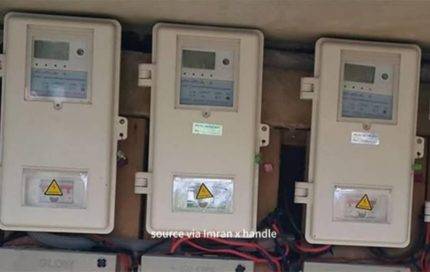The Nigerian Electricity Regulatory Commission (NERC) is contemplating a potential surge in the prices of prepaid meters, according to recent reports. The move comes amidst concerns over the escalating costs associated with meter provision and maintenance. Meter Asset Providers (MAPs) have halted the sale of new meters, awaiting NERC’s approval of revised pricing structures. This development has led to a suspension in the processing of new meter applications until the anticipated price adjustments take effect.
The decision to reassess meter prices stems from challenges related to foreign exchange (FX) rates, which have adversely impacted meter manufacturers’ operations. As a result, these manufacturers have suspended the issuance of invoices until the pricing review is concluded. The potential price hike could have significant implications for consumers, as it may lead to increased upfront costs for acquiring prepaid meters, exacerbating the financial burden on households already grappling with electricity expenses. Additionally, the delay in processing new meter applications may further exacerbate the existing metering deficit across the country, exacerbating challenges associated with billing accuracy and revenue collection for electricity distribution companies (DisCos).
Impact on Consumers and Industry Dynamics
Should the proposed price increase materialize, consumers are likely to face heightened financial strain, particularly in light of existing economic pressures and rising utility bills. The upfront cost of purchasing prepaid meters could become prohibitive for many households, potentially deterring them from accessing reliable electricity services. Furthermore, the suspension of new meter installations may prolong the prevalence of estimated billing practices, which have long been a source of contention between DisCos and consumers.
From an industry perspective, the delay in approving new meter prices and processing applications may disrupt the operations of MAPs and meter manufacturers, leading to supply chain disruptions and revenue losses. The uncertainty surrounding pricing and invoicing procedures could also dampen investor confidence in the metering sector, hindering efforts to address Nigeria’s metering challenges effectively. To mitigate these adverse effects, stakeholders, including NERC, government authorities, and industry players, must collaborate to expedite the resolution of pricing issues and facilitate the seamless provision of prepaid meters to consumers nationwide.
Addressing Regulatory Challenges and Ensuring Accessibility by NERC
In navigating the complexities of meter pricing and supply chain dynamics, regulatory bodies like NERC play a pivotal role in balancing the interests of consumers, industry stakeholders, and the broader energy sector. As such, it is imperative for NERC to conduct a thorough review of pricing mechanisms, taking into account factors such as exchange rate fluctuations, manufacturing costs, and consumer affordability. Additionally, NERC should be made to streamline regulatory processes and enhance transparency to foster trust and accountability within the metering ecosystem.
Furthermore, initiatives aimed at promoting metering accessibility and affordability must be prioritized to ensure equitable access to electricity services for all Nigerians. This may involve implementing targeted subsidy programs, incentivizing private sector investments in meter production and distribution, and leveraging technology to optimize metering operations and data management. By adopting a holistic approach to addressing regulatory challenges and promoting metering innovation, Nigeria can move closer to achieving its electrification goals and fostering sustainable economic development.
Challenges in Meter Acquisition
The prevailing sentiment among Nigerians is that metering should be the responsibility of the Electricity Company, with the cost factored into monthly payments over the long term. Many argue that customers should not be burdened with the upfront cost of purchasing meters, as they are not owned by the consumer but rather by the utility provider. Furthermore, the Nigerian Electricity Regulatory Commission (NERC) is contemplating further price increases for prepaid meters, exacerbating concerns among consumers.
Call for Government Intervention
In response to the looming price hikes and the reluctance of consumers to purchase meters due to their increasing cost, there is a growing call for government intervention to subsidize metering expenses. Advocates argue that subsidization would make meters more accessible to the general populace and alleviate the financial strain on consumers. Additionally, there is a suggestion to explore domestic manufacturing of prepaid meters using locally-sourced components, tapping into Nigeria’s financial resources, intellectual capital, and market potential.
As discussions around metering in Nigeria continue, it is evident that the current model of consumer-funded meter acquisition is unsustainable and inequitable. There is an urgent need for the government, NERC, and stakeholders to collaborate on viable solutions that ensure universal access to electricity metering. By prioritizing affordability and accessibility, Nigeria can address the longstanding issue of metering and pave the way for a more sustainable and equitable energy sector.
Table of Contents
Discover more from OGM News NG
Subscribe to get the latest posts sent to your email.














